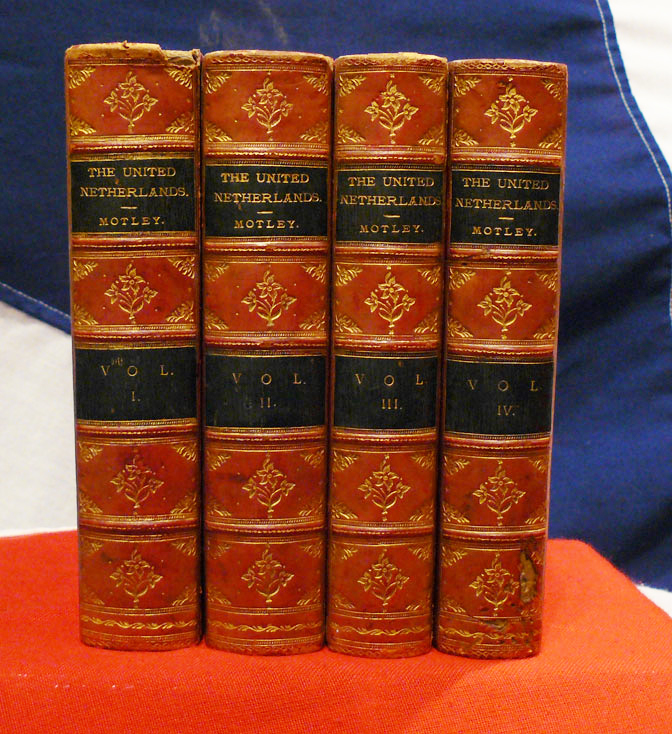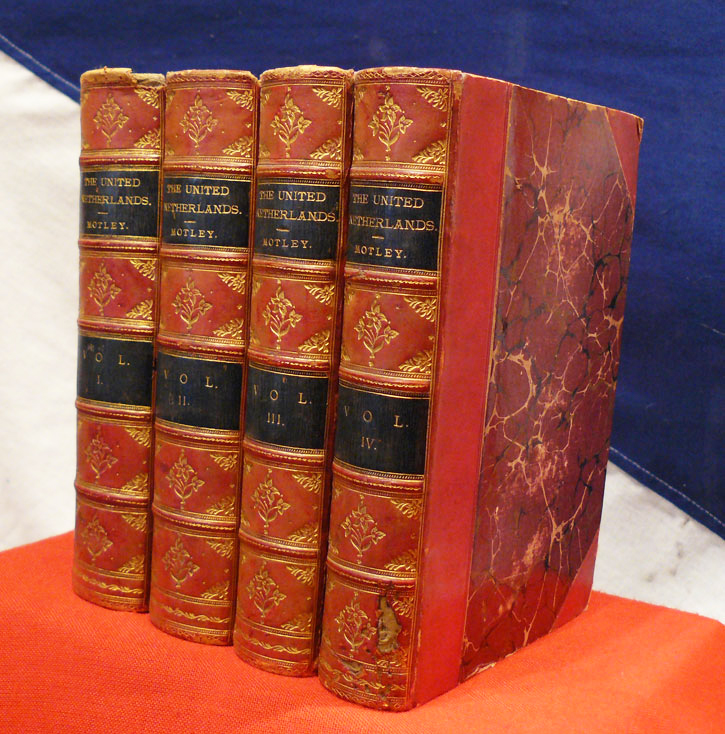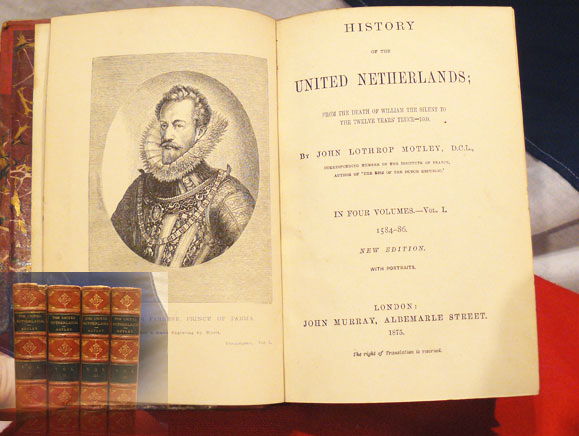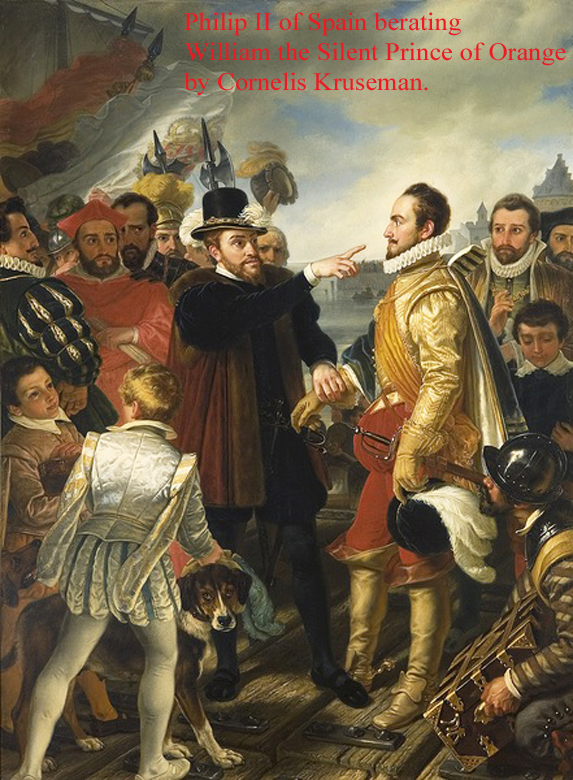History of United Netherlands From The Death of William the Silent,To The Twelve Years Truce - 1609. by John Lothrop Motley. New Edition With Portraits. 4 volumes,
All in fine bindings with clean and polished calf in red, two gilted leather title labels on the spines of each, 5 raised bands. Marble cover and interior pages. Marbled edges.
Published 1875/6 by John Murray Albemarle St. London. Motley, who served as United States ambassador to Austria during the Civil War and later as ambassador to Great Britain, said of his affinity for the Netherlands: "I had not first made up my mind to write a history and then cast about to take up a subject. My subject had taken me up, drawn me on, and absorbed me into itself." Although he spent much of his life abroad, Motley was a member of the Boston literary circle that included Hawthorne, Lowell, Longfellow, and Motley's future biographer, Oliver Wendell Holmes. William I, Prince of Orange (24 April 1533 ? 10 July 1584), also known as William the Silent or William the Taciturn (translated from Dutch: Willem de Zwijger), or more commonly known as William of Orange, was the main leader of the Dutch Revolt against the Spanish Habsburgs that set off the Eighty Years' War (1568?1648) and resulted in the formal independence of the United Provinces in 1581. He was born in the House of Nassau as Count of Nassau-Dillenburg. He became Prince of Orange in 1544 and is thereby the founder of the branch House of Orange-Nassau and the ancestor of the monarchy of the Netherlands. Within the Netherlands he is also known as Father of the Fatherland (Dutch: Vader des Vaderlands).
A wealthy nobleman, William originally served the Habsburgs as a member of the court of Margaret of Parma, governor of the Spanish Netherlands. Unhappy with the centralisation of political power away from the local estates and with the Spanish persecution of Dutch Protestants, William joined the Dutch uprising and turned against his former masters. The most influential and politically capable of the rebels, he led the Dutch to several successes in the fight against the Spanish. Declared an outlaw by the Spanish king in 1580, he was assassinated by Balthasar G?rard (also written as "Gerardts") in Delft in 1584. A fine set, very collectable and much sought by collectors. Philip II of Spain berating William the Silent Prince of Orange by Cornelis Kruseman.
Code: 22358
675.00 GBP




